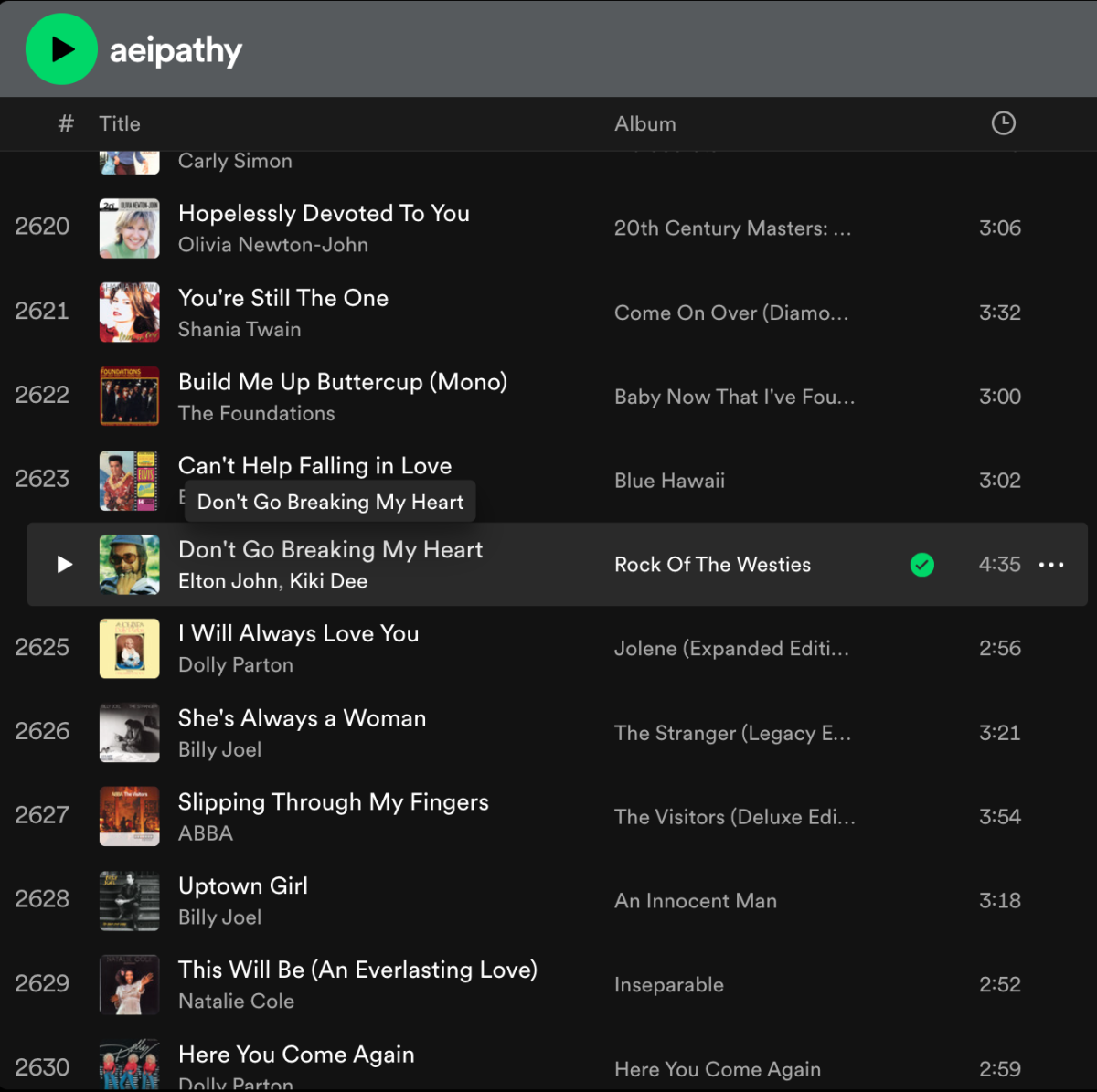Do you have Netflix?

More stories from Natalie Mix
A collage of Disney Plus, Netflix, Amazon Prime Video, and Hulu
Bold red letters unfold on the screen, emphasized by a familiarly thudding noise that fades into a faint ringing. The black screen dissipates, unveiling a vast library of movies and TV shows. From The Office to Indiana Jones and everything in between, Netflix seems to have it all.
But lately, that statement doesn’t ring quite as true as the iconic opening logo.
As fingers dance across keyboards and eyes meet the lists of content coming-to and leaving Netflix, they discover an accumulation of Netflix originals, and their hearts say good-bye to a parade of other fan favorites.
“I’ve seen a lot of shows [get] taken down,” said junior Sharon Parmar, “and I know The Office is leaving as well next year or by the end of 2020, and I just don’t really understand why that happens. Netflix was made as the one platform where everyone could go to watch any movie or any show they wanted.”
Sharon’s disappointment is a thread that connects her to an extensive group of people. And the question lies at the center of this tapestry: why are these shows packing their bags?
They’re being called to another home—one of the many rapidly appearing new streaming services. Netflix’s success propelled a revolution that just might be the cause of the company’s downfall. An industry whose meager beginnings involved Netflix and Hulu is now being overrun with new companies.
“Personally, I think that Netflix and Hulu are going to get run out of business,” Sharon said, “because they’re making so much original content—which is fine and everything—but the whole idea was to have [services] that everyone could go to.”
In a way, Netflix reinvented the way Sharon lived her life. A childhood that included minimal TV time has blossomed into a teenagehood ridden with shows and movies.
“Before I had Netflix, I didn’t really watch a lot of TV growing up,” Sharon said. “That obviously is not true now because I stayed up until 5:30 a.m. watching a show. It’s really a problem. I get way too attached to the characters.”
Sharon’s childhood also lacked in Disney content, but Netflix allowed her to make up for lost time. She rightfully considers herself a Disney fan at this point in her life, which brings her a sense of gratitude and curiosity as Disney prepares to launch its own streaming service—yet another company eagerly hopping onto the bandwagon.
Her excitement does not, however, dull her understanding of the significant downsides to this phenomenon. The money that families will throw towards these services concerns her, and the potential negative impact on Netflix and Hulu doesn’t bode well.
“So many Disney shows that used to be on there when Netflix first became big got taken down,” Sharon said, “and I know they’re all going to Disney Plus now. I just don’t want to pay so much money for so many different services because the whole point was [that] there’s one service you have to pay for, and you get everything you want.”
This booming industry is progressing towards an era that echoes that of cable TV, a fact that sophomore Thomas Smith acknowledged.
“Netflix has definitely taken [a hit] lately with all these streaming services popping up,” Thomas said. “We’re sort of feeding back into the problem of cable, [but] lots of people quit cable because it was so much; you could just get a couple of streaming services for way less.”
With the technology and knowledge society—and the movie-making industry—have acquired over the last several years, it seems entirely backward that the industry is resorting to an option that eventually declined.
However, certain upsides pose an answer to that query. Streaming services open up the industry to more contributors, widening the selection of movies and shows. More streaming services means more opportunities for success.
“[Streaming services] allow a wider variety of people to make TV shows,” Thomas said. “They also allow certain content to be released on streaming services that wouldn’t necessarily be released [elsewhere], as well as being able to watch any movie or show that’s on a streaming service whenever you want, whether or not it’s on TV at the time.”
It’s merely a matter of individuals weighing the pros and cons of going with one or two services that encompass a majority of the content they desire or enjoying content from an expensive—but wide—variety of services.
Thomas, for one, believes the industry could benefit from a bit of renovation.
“I think it was great at first,” Thomas said. “It undermined cable and allowed people that didn’t have as much money to be able to watch these streaming services without pirating everything. But it’s slowly gotten to the point where it’s essentially back to paying a cable bill but to just a bunch of different companies instead of a singular one.”
Freshman Emma Raisch debates between her own varying opinions; her family doesn’t have any streaming services. The decision is not her own, nonetheless, she sees both the highs and the lows of the industry.
While some may see a lack of Netflix, etc. as a curse, she recognizes the blessing in it.
“[Streaming services] can spoil us,” Emma said. “Not as much as some things, but I think education-wise, yes. [Students] are always like, ‘oh yes, I want to watch this instead of doing my work.’ If you’re tempted to watch something, then you usually end up watching it and that can really affect you.”
Without that avenue for procrastination that so many succumb to, Emma can conquer life with a little less distraction. Consequently, she possesses more time for other forms of entertainment.
And she doesn’t perceive not having streaming services as much of a setback. In no way does it separates her from her peers, and family friends have offered their own Netflix accounts if she’s ever in need. But she doesn’t often find herself in such a position, not when her family boasts a massive library of DVDs including everything from Little House on the Prairie to Iron Man.
Emma still recognizes the benefits that streaming services can provide.
“DVDs are usually pretty expensive,” Emma said. “If you’re able to just pay a certain amount each month and have access to all of these movies, I feel like that would be more efficient.”
And as a Disney fan, Emma has to admit that she’s a fan of Disney Plus.
“I think it’s a good thing personally because I like Disney,” Emma said. “Usually people are on Netflix or other streaming services, and I think that’ll definitely help Disney because [people] love Disney, and it’s really good for their kids. If we could get it, I would.”
On both sides of the spectrum, the exorbitant increase of streaming services is far from a black and white issue.
Sophomore Brian Travis understands the point of view a company may have as they attempt to join their competition. No one wants to pass up an opportunity for improvement and success. As a consumer, he contemplates the dilemma of choosing one service that lacks in certain shows or dishing out money for a range of satisfying services.
The future of the TV streaming service industry isn’t something anybody can know now, but it’s safe to say it’ll only become more mainstream. And it’s fair to assume that there will always be variety, both in opinions and choices.
“Streaming services have made TV way more accessible and binge-friendly,” Brian said, “which is really fun; however, the rise of many different entertainment companies all competing with one another and pulling away their most popular content to be exclusively on their own services is really annoying. I think these last few years have been the good-old-days of streaming. It’s going to get messy soon.”

Natalie Mix is a senior taking on her fourth and final year as a member of The Central Trend. Room 139/140 and the staff of The Central Trend have been...




























































































